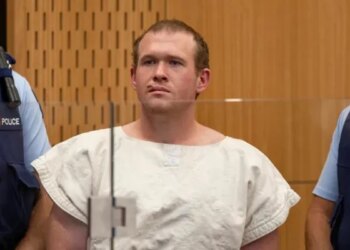Select Language:
The killing of right-wing influencer and commentator Charlie Kirk signals a significant escalation in the rise of political violence across the United States. Many experts warn that this incident could deepen an already divided nation, potentially spurring further unrest.
“This is deeply disturbing and frightening, yet not entirely unexpected,” explained Mike Jensen, a researcher at the University of Maryland, which has been monitoring political violence since 1970 through a dedicated terrorism database.
In the first half of this year, the U.S. saw around 150 politically motivated attacks, almost doubling the number from the same period last year, Jensen noted. “We’re in a very dangerous situation that could quickly spiral into widespread civil unrest if we don’t intervene,” he added. “This incident could act as a catalyst that triggers more violence.”
Domestic terrorism specialists attribute this surge to a confluence of issues: economic instability, fears over changing racial and ethnic dynamics, and increasingly heated political rhetoric. Traditional ideological conflicts—once largely centered on policy disagreements—have transformed into more personal and visceral animosity, fueled further by social media, conspiracy theories, and individual grievances.
Last year, Reuters documented at least 300 cases of political violence across the U.S. between the January 6, 2021, Capitol riot and the 2024 presidential election, marking the most persistent spike in such incidents since the 1970s.
“Acts of extreme political violence are becoming more commonplace,” said Jon Lewis, a researcher at George Washington University’s Program on Extremism. “The shooting of Charlie Kirk highlights a broader, more dangerous trend: violence driven by factors beyond specific ideologies or motives.”
Experts emphasize that the cycle of retaliation and avoidance of initiating violence complicates efforts to prevent further incidents. “People are hesitant to be the first to resort to violence but are more willing to retaliate once it begins,” said Lilliana Mason, a political science professor at Johns Hopkins University.
Kirk, a prominent supporter of former President Donald Trump and founder of the conservative student organization Turning Point USA, was giving a speech to about 3,000 people at Utah Valley University when gunfire erupted, causing chaos as he was knocked to the ground and attendees scrambled for safety.
As of Wednesday evening, authorities had not publicly identified a suspect. FBI Director Kash Patel mentioned that an unidentified individual had been detained and then released for questioning.
Kirk, age 31, played a pivotal role in rallying young Americans to support Trump’s “Make America Great Again” movement through social media. Trump himself praised Kirk following his death, stating, “No one understood or connected with America’s youth better than Charlie.” House Speaker Mike Johnson said there has been a surge of lawmakers demanding increased security in response to the shooting.
Earlier last year, Trump endured two assassination attempts, one resulting in the shooter’s death, and another involving an individual armed with a rifle near a golf course where Trump was present; that trial is currently in progress. Additionally, two other violent attacks by right-wing extremists—one in Minnesota where a nationalist killed a Democratic lawmaker and her husband, and another at the CDC headquarters in Atlanta—shook the nation.
Since the start of 2025, at least 21 individuals have died in politically motivated violence, including an attack early on New Year’s Day in New Orleans where an assailant expressed loyalty to ISIS.
In Texas, in July, a group of at least 11 militants targeted an immigration detention center, throwing fireworks, spray-painting “traitor” and “ICE Pig,” and shooting a police officer in the neck, injuring him.
Since taking office again, Trump has reduced efforts to combat domestic extremism, redirecting resources to immigration enforcement and citing border security as the main threat.
Jensen warns that the outlook remains bleak. “This administration has brought significant changes to the country in just eight months—some positive, some negative. The opposition and supporters are increasingly acting out against each other, creating a vicious cycle that could lead to an even darker period in our nation’s history.”







